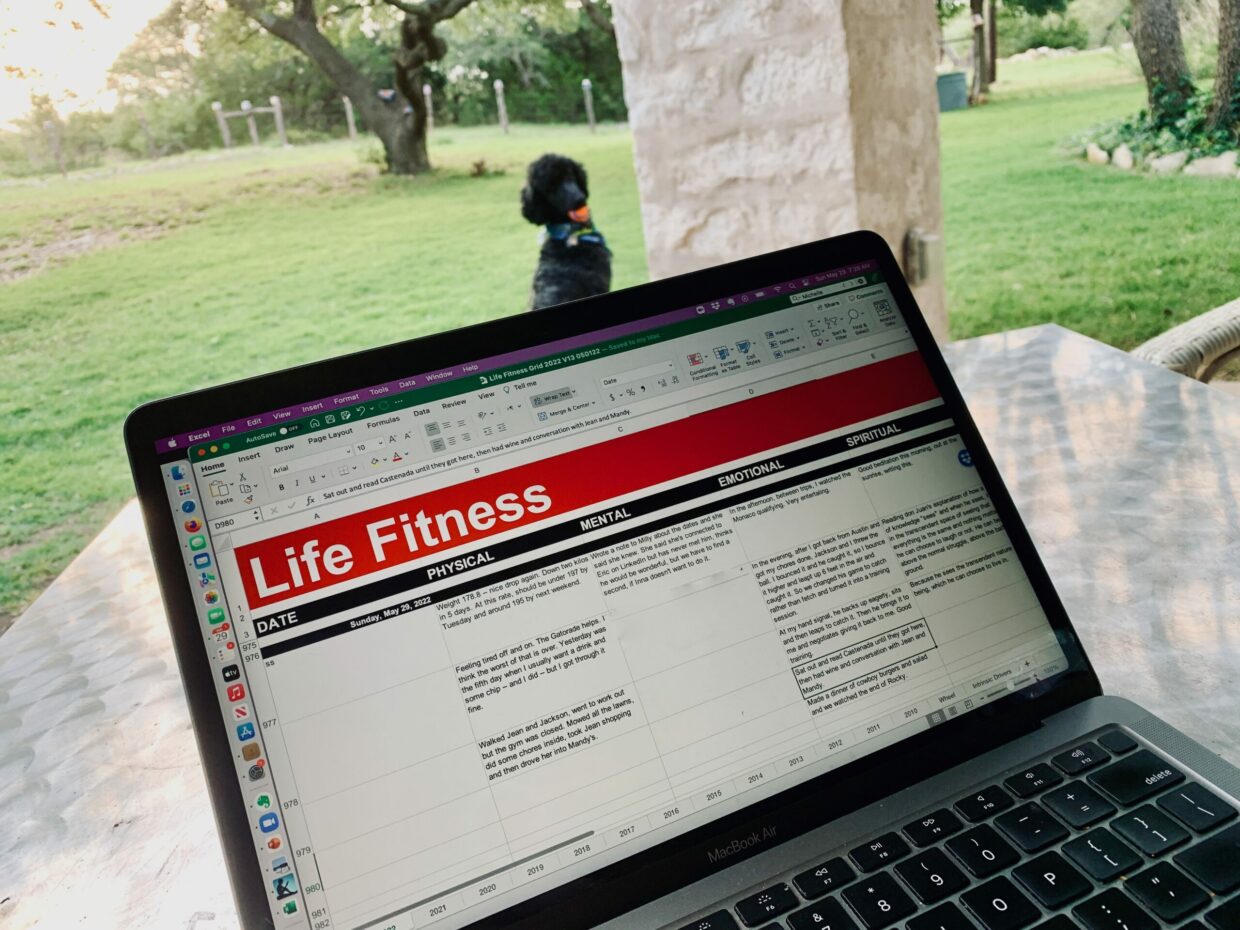by Dain Dunston
Eric McNulty, one of our Reservoir coaches, was telling me about a client company where people regard executive coaching not as a benefit but as a strike against you. The feeling is that you don’t get offered coaching because anyone thinks it will make you better. You get offered coaching because they think you’re hopeless and are probably going to fail.
“Why,” Eric wanted to know, “do the same people who marvel at Tiger Woods on Sunday avoid a coach for themselves on Monday?” In the world of sports, even coaches know they need coaches. And based on our experience with CEO clients, leaders at the top usually have a strong sense of the value of a trusted advisor, partly because they have so few other people they can open up too. So why are other C-Suite and VP level executives wary of asking for coaching?
One reason people fear coaching is that it might be seen as a sign of weakness to admit one needs help. This may be more a male issue than female: women are socialized to share and solve problems together. Men are taught to ‘man up,’ to solve problems on their own; preferably not to have any problems at all (since anyone who has a problem must be weak). But for both men and women, in any line of work, there’s always a need to overcome a sense of being “less than.”
Our first impressions of the world around us begin with the sense that these people hovering over our crib are gigantic. They’re capable. They can do things and make things happen. We, as infants, are completely unlike them. We look up at them and think, “They’re big and I’m not. I can’t do any of the things they can do. And — oh no! — I just pooped my pants again.” Everything we construct about who we believe we are is framed, in part, by that early experience.
If we’re able, we learn to shed that sense of ‘less than,’ or at least understand that it’s a normal part of human growth. In time, we can learn to laugh at it: “Look, there’s Little Me again, thinking I’m not worthy!” But often, we can’t let it go. We can try to hide it with arrogance and anger, or we can sink into it with chronic self-doubt and feelings of worthlessness, constantly selling ourselves short.
“This history of the world is the story of men and women selling themselves short.” – Abraham Maslow
As we grow into our work life, we try cope by hiding our sense of incompetence. So, if we ask for or accept coaching, wouldn’t that be seen as an admission that we are “less than?” As an admission that we don’t know what we’re doing? (Well, it might. But only by people who are even more insecure about who they are than you are.)
That’s a normal and understandable fear, one that’s easily dispelled by reading about the life of almost any leader, athlete or artist that you admire and learning about the mentors who coached them to greatness. But there’s a deeper, more fundamental fear around the idea of coaching that’s separate from the perception that it might be seen as weakness. And that’s the fear that through coaching, we would have to come face to face with something potentially terrifying: we would have to face our self.
In Martin Buber’s essay, Self-Awareness, he recounts a Talmudic tale of a rabbi in St. Petersburg who had been arrested by the government on suspicion of being, well, probably just Jewish. As he sat in his cell in meditation, he was visited by the chief of police, who was drawn to the rabbi’s serenity. He began a conversation with his prisoner and soon thought of a question from scripture that intrigued him.
“How am I to understand that God, who is omniscient, asks Adam, ‘Where are you?’”
“Well now,” said the zaddik “in every age God addresses every person with the question, ‘Where are you in your world? Already so many of your allotted years and days have passed. How far have you come in your world?’ Perhaps God will say, ‘You have lived forty-six years. Where are you now?’”
When the chief of police heard the exact number of his years, he pulled himself together, clasped the rabbi’s shoulder, and exclaimed: “Bravo!” but his heart trembled.
One can read this in different ways, but I read it as the rabbi coaching the questioner to confront not a distant and separate “God’” but his Self, the innermost part of his psyche that has been waiting for him to start asking the right questions, starting with “Where are you?” The fact that he casually stopped to talk to the rabbi and asked a seemly random question suggests he had an intuitive sense that drew him into the room and, in fact, opened a door that needed opening. Without a coach, that door will probably swing shut later in the day. But in that moment, at least, the policeman had an opening.
Here’s what the essayist Anne Lamott says, echoing the poet Mary Oliver: “Your problem is how you are going to spend this one odd and precious life you have been issued. Whether you’re going to spend it trying to look good and creating the illusion that you have power over people and circumstances, or whether you are going to taste it, enjoy it and find out the truth about who you are.”
Trying to look good and creating the illusion that you have power is human. There’s no shame in it. But it’s a poor substitute for actually having power and presence and looking good because of it. Because being an authentic human being – unafraid to show vulnerability and humility, unafraid to be who you are – is the only way to have genuine power. It’s the only way you can be “attractive” in the most complete sense of attracting positive energy toward you.
Some people will argue that they don’t need a coach because they already know who they are. And maybe they do. But my friend, the psychologist and martial arts grand master Frank Allen insists that “We have a self and a ‘self-concept.’ We live in the concept we make up.” Think of it as the conservation of ego: we invest mental and emotional capital trying to shore up the self-concept we’ve spent our life developing. The problem is that the self-concept is not the self. And just as incorrectly, there is a similar process with the conservation of our construction of others. We experience other people as a construction we create in our minds. And then we spend our lives living in these false constructions and wondering why they don’t work.
That’s not just a problem in leadership, of course. It plays havoc with all our relationships. A husband who lives in a self-concept trying to have a relationship with a “construction” of his wife is in trouble, and so is she. The fact that they represent the norm of almost all relationships doesn’t make it any easier. But some coaching could.
I don’t encounter it often, but when I meet people who are vehement that coaching (or other forms of self-examination, such as counseling or therapy) is useless, I find a person who is deeply unaware of who they are. I will assert that all coaching is done for one reason: to expand your awareness of yourself. And in the field of leadership coaching, the idea of the “unaware” leader is terrifying. Imagine an unaware pilot on your next flight! Awareness is perhaps the most critical condition of good leadership. Awareness is listening and sensing what’s happening around you and within you. Awareness is knowing where you are and why you’re there.
Any decision of the mind will affect both behavior and experience. The solution is to “change” your mind — to make a better decision, one that leads to better behavior and experience. The ability to do that does not come naturally or easily. It comes with coaching and practice.
Gaining awareness of “the self” is not a “one-and-done” proposition because one’s perception of and understanding of the Self expands and deepens with coaching and practice, practice being the key word. Just having a couple of conversations with a coach will get a person nowhere, because the work is the individual’s daily practice of the coaching.
And that may be the answer to the topic at hand: only those who are willing to do the work will get the benefit of coaching. So, if you’re not willing to be a champion of self-awareness, coaching would be a complete waste of your time and you should avoid it (unless you’d like some coaching on that mistaken assumption).








